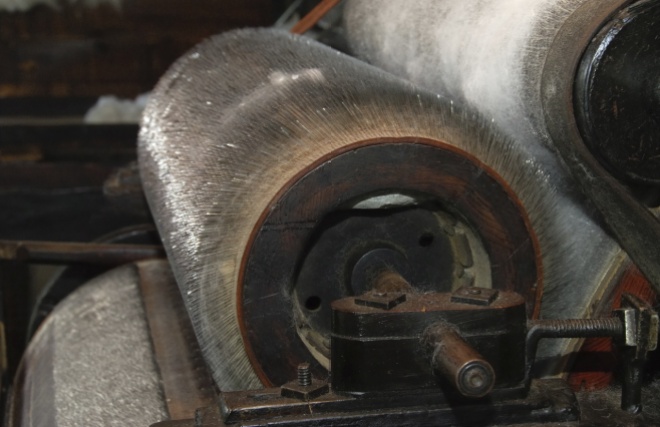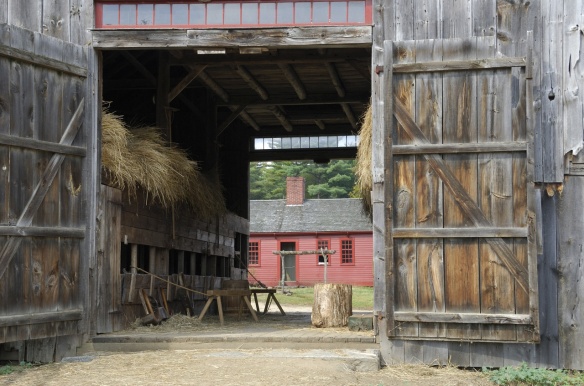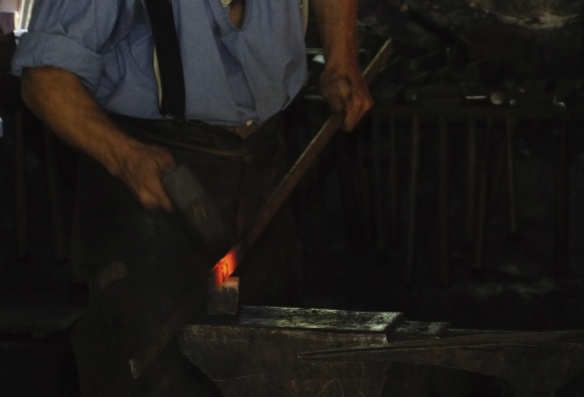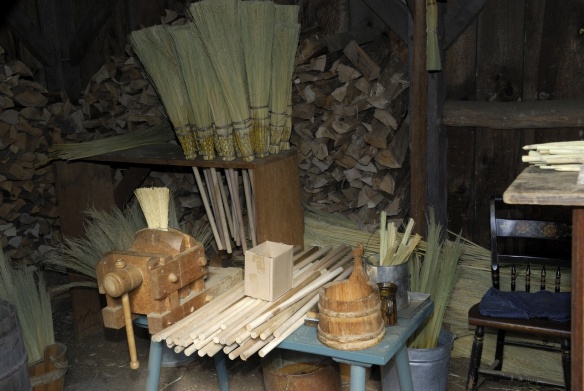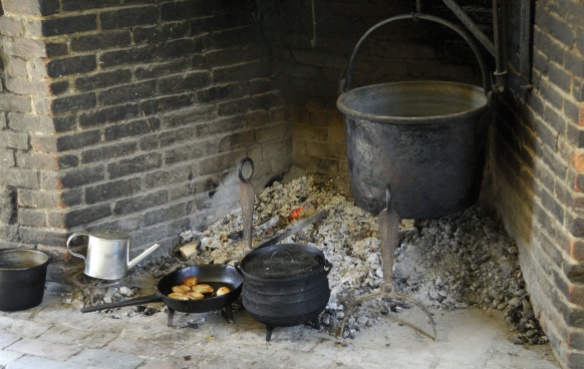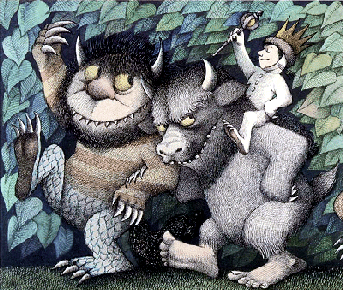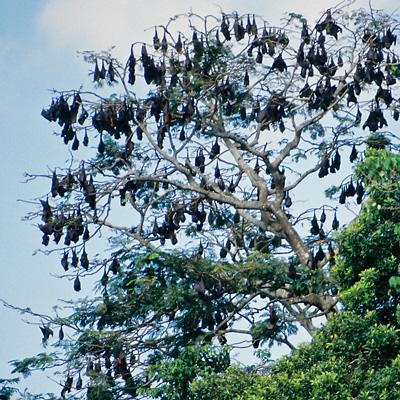Old Sturbridge Village opened to the public for the first time on June 8, 1946. The site was born from the collective collecting vision of one family. The three Wells brothers of the American Optical Company founded the massive collection that makes up Old Sturbridge. It is the world’s finest collection of rural New England artifacts.
Old Sturbridge Village began with a 1926 golf date cancelled due to Vermont rain. A.B. Wells went on an antiquing quest instead, and became obsessed with collecting New England antiques and artifacts. Click here for more on the history of Old Sturbridge Village and their website: www.osv.org/visit.
In honor of the Wells and their visionary collection I am reprinting Part One to my post describing our visit to Old Sturbridge. – Jadi
***
I love open air museums. Reading about history is nice, but when it’s three dimensional it comes to life for me. As a child, one of my family’s favorite destinations was Old Sturbridge Village in Massachusetts. The village depicts life in historic New England from 1790-1840. Visitors stroll across 200 acres that contain 40 mostly original buildings and over 50,000 artifacts. It’s the northeast’s largest open air museum.
One year Uwe and I went to New England. I insisted that our trip include a visit to Old Sturbridge Village. In retrospect, it wasn’t just because the spot is so much fun, and it would be interesting (I hoped) for my European husband to learn about early New England history. A big part of the draw was my desire to revisit a favorite piece of my own childhood.
Revisiting places can be a letdown, but the autumn weather couldn’t have been more beautiful. The seasons were about to change and the leaves were coming into their glory. It was perfect.

The entry price is steep, now $28 a person. But parking is free, and a second day’s visit is included. I was delighted that Uwe was willing to return the next day! [1]
Old Sturbridge has a large staff and lots of volunteer docents, folks who dress up in period costumes and chat with visitors. These volunteers go through a training period first and either demonstrate crafts (the blacksmith) or share knowledge (the bank clerk). All of them are enthusiastic and fun to talk with.

Originally from Dummerston, Vermont, c. 1826 and 1838-39
Only 25% of those first store patrons could afford to pay cash. Most customers bartered for store goods. The store owner kept a careful ledger of customers’ names, purchases, and what they owed. The young woman behind the counter explained that while ‘her’ father would have run the store, it was likely that a daughter would drop her other duties to help out if she was needed.
Goods from around the world as well as local products were for sale even two hundred years ago.

Originally from Sturbridge, Massachusetts, c. 1800-1850
Tinplated sheet iron was imported from Great Britain and formed in New England tin shops.The Old Sturbridge Village gift store has handmade items such as dippers, lanterns, etc. for sale.

Originally from Thompson, Connecticut, c. 1835
The bank’s single employee was the cashier, open for business in the morning. Afternoons were spent doing paperwork and bookkeeping. This terrific volunteer regaled us with his knowledge and said that yes indeed, the bank clerk would have sat at the window waiting for business and chatting with people passing by…

Originally from Brookfield, New Hampshire, c. 1840
A farm family drank about 300 gallons of hard cider each year. Hic!

Originally from South Waterford, Maine c. 1840
This is the only New England water-powered carding mill still in existence. It did a day’s work of hand-carding wool in a mere 20 minutes.
NOTES: [1] Of course, for Uwe a big draw was the unique photo ops… ©2015 Jadi Campbell. Previously published as New England’s Old Sturbridge Village, Part 1. More of Uwe’s pictures from New England and his photography may be viewed at viewpics.de.
My books are Broken In: A Novel in Stories, Tsunami Cowboys, Grounded and The Trail Back Out.
Click here for my author page to learn more about me and purchase my books.





